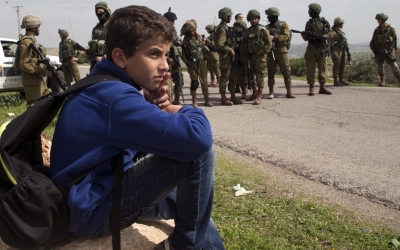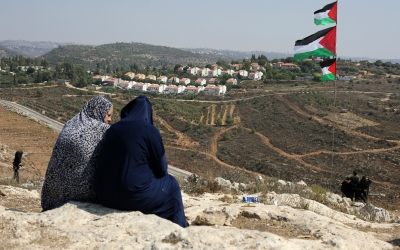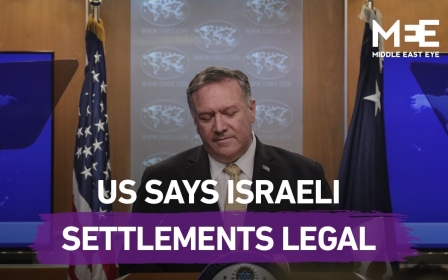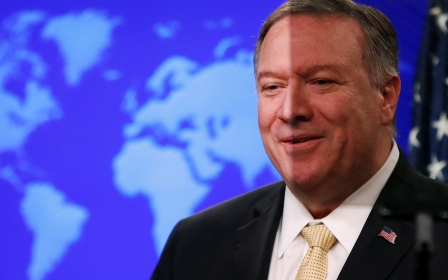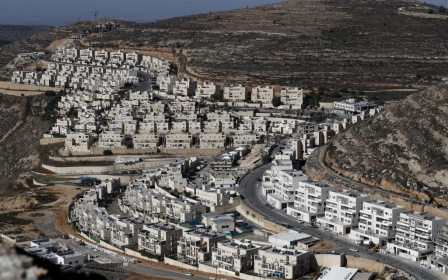US position on Israeli settlements backs Jordan into a corner
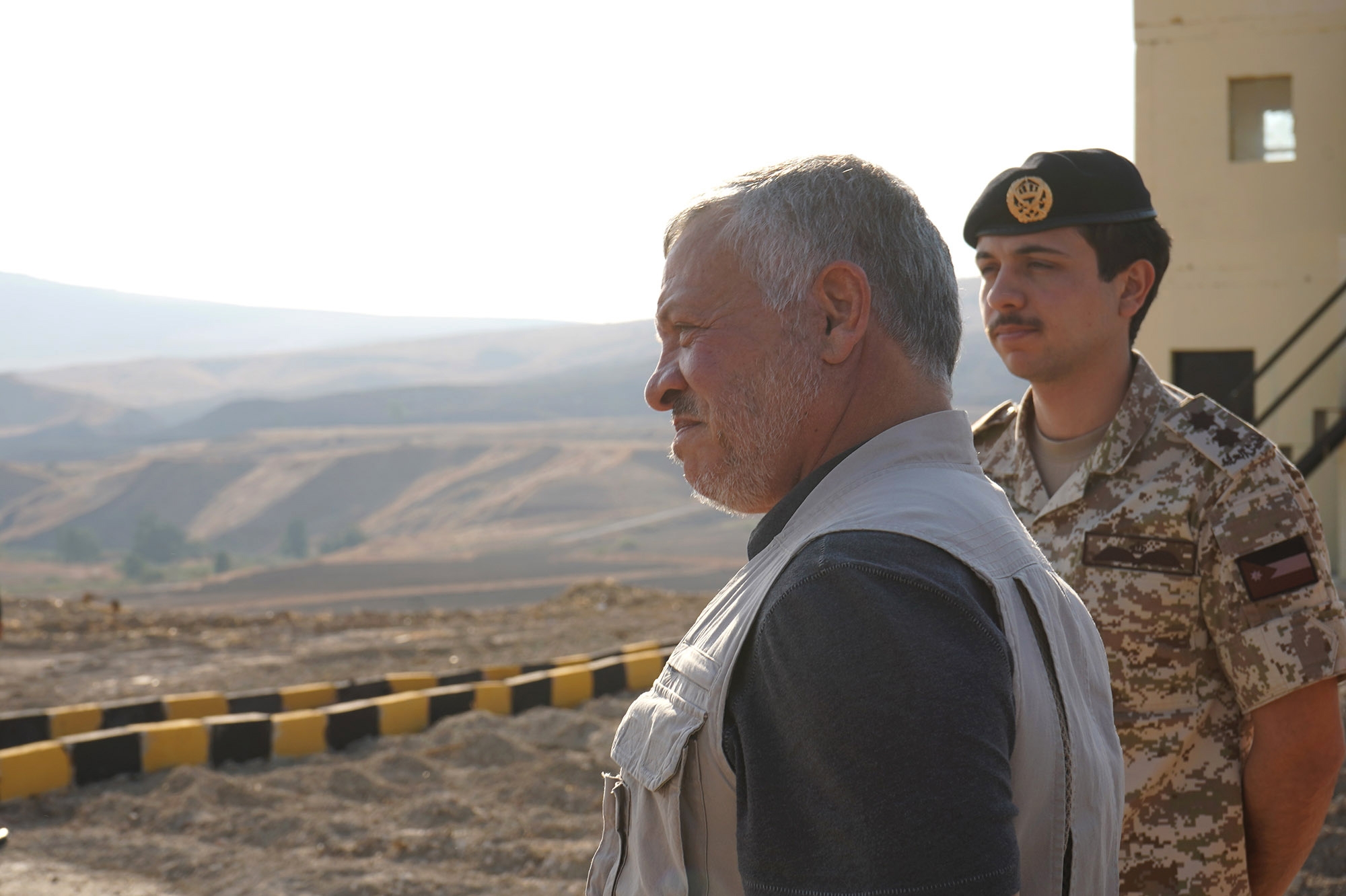
Before last week, Jordan found itself squeezed by a moribund economy, regional rivalries and Washington’s unilateral moves promoting Israeli interests at the expense of the Palestinians.
On Monday, that situation only became worse as Secretary of State Mike Pompeo declared the US no longer considered Israeli settlements in the occupied West Bank to be illegal – prompting Netanyahu to boast that the move essentially green-lighted annexation of the Jordan Valley.
Naturally, both announcements were rejected by the Jordanian government, with Foreign Minister Ayman Safadi on Tuesday warning the US move was dangerous, stressing "Jordan's firm position in condemning the settlements which violate international law".
Settlements, Palestine and the two-state solution are of the utmost strategic importance to Jordan. The kingdom hosts approximately 2 million UN-registered Palestinian refugees, and the US’s decisions heavily promoting Israeli expansionist interests not only make any potential return more distant, but anger an already unsettled populace.
The gap between Washington and Amman has grown ever wider since Donald Trump’s inauguration as president in 2017. Pompeo has only pushed them further apart.
Stay informed with MEE's newsletters
Sign up to get the latest alerts, insights and analysis, starting with Turkey Unpacked
Means of pressure
Mohammad al-Momani, former minister of state for media affairs and communications, told Middle East Eye that Jordan is likely to turn to the International Court of Justice for consultations over how to tackle the US position on settlements.
“The establishment of a Palestinian state with East Jerusalem as its capital is a top Jordanian interest, and anything that opposes it will have to be confronted,” he said.
“Jordan will make diplomatic and political moves, and explain the issue to friendly and partner countries, especially the United States. It should be a political and technical discussion to explain the seriousness of this issue on the peace process."
The danger of the US decision, according to Momani, is it will "give a green light to Netanyahu to annex land in the West Bank, which is part of the Palestinian territories”.
“This means that there is a right-wing American-Israeli thinking that these lands will be part of Israel. Consequently, the fate of the inhabitants of that area will either be expelled or become part of the political entity, Israel, and this will deeply undermine the two-state solution," he added.
King Abdullah II is expected to discuss Pompeo’s announcement with members of the Trump administration and US Congress on the sidelines of his visit to New York City where he is to receive the 2019 Scholar-Statesman Award.
Jordanian sources told MEE that the king will not meet Trump during the visit.
King Abdullah II has a strong relationship with members of the US Congress, a marked contrast to his ties to the Trump administration.
Nancy Pelosi, the speaker of the US House of Representatives, and other senior members of Congress visited Jordan last month during which the Jordanian monarch reiterated his position on a two-state solution to the Israel-Palestine conflict.
'The strength of Jordan was its ability to convince its allies of the extent of the damage that these kind of decisions make'
- Amer al-Sabaileh, analyst
Trump, who has only met the king once, has already recognized Israeli sovereignty over the occupied Golan Heights and Jerusalem as Israel’s capital.
Writer and political analyst Amer al-Sabaileh believes Jordan has few means to face Trump’s gifts to Israel, as the kingdom's dependence on the US politically, economically and militarily gives it little room to manouevre.
Speaking to MEE, Sabaileh blamed Jordan’s foreign policy for Amman’s inability to pressure its allies.
"The strength of Jordan was its ability to convince its allies of the extent of the damage that these kind of decisions make,” he said.
"But whoever led foreign policy isolated Jordan without allies, and the kingdom lost the chemistry of communication."
Souring relations
Netanyahu’s pledge to annex the Jordan Valley following Pompeo’s statement, reiterating plans he has already announced, has many Jordanians worried.
The highly strategic area lies just across the River Jordan and makes up around one-third of the occupied West Bank.
Relations between the two neighbours had already been at a nadir.
Tensions have been particularly high in recent days after Jordan reclaimed the lands of Baqoura and al-Gharma that Israel leased for farming two weeks ago.
Before that, Jordanians were enraged by Israel’s detention of two Jordanian nationals, who were released earlier this month.
Trump's gifts to Israel
+ Show - HideThe Trump administration's bombshell announcement that it no longer considers Israeli settlements in the occupied West Bank illegal under international law has sent shockwaves through the region.
But it's only the latest in a long line of unilateral gifts offered by Donald Trump to Israel since the president took up residence in the White House in January 2017.
Middle East Eye takes a look at how Trump has promoted Israeli interests at the expense of the Palestinians:
Pro-Israel aides: Friedman, Kushner and Greenblatt
From the first moment Trump stepped in the Oval Office he appointed a raft of aides with close ties to Israel and the settlement movement.
Two of the first, and most prominent, tasked with dealing with the Israel-Palestine conflict were Jared Kushner, his son-in-law, and Jason Greenblatt, his personal lawyer.
Kushner and Greenblatt have been heavily involved in the so-called "deal of the century" peace plan, however their loyalties are heavily weighed in Israel's favour.
Kushner's family are close friends of Israeli Prime Minister Benjamin Netanyahu, and donated money to settlement organisations.
As Middle East envoy, Greenblatt, meanwhile, has consistently defended Israeli actions against Palestinians.
David Friedman, US ambassador to Israel, has been the Israelis' chief cheerleader since taking office in May 2017, telling the New York Times that “under certain circumstances, I think Israel has the right to retain some, but unlikely all, of the West Bank".
In July, Friedman and Greenblatt opened a highly controversial tunnel under the Palestinian neighbourhood of Silwan in occupied East Jerusalem.
The US ambassador was seen taking a hammer to a wall in the ancient archaeological site with particular zeal, in an event organised by settler group ELAD.
Recognising Jerusalem as Israel's capital
In a clear sign that Washington was prepared to upend years of convention and consensus in Israel's favour, Trump announced in December 2018 that the United States recognised Jerusalem as the Israeli capital.
East Jerusalem has been occupied since the 1967 Middle East war, and the Palestinians seek it as their capital of any future state.
The international community has maintained that Jerusalem's status must be agreed upon in a settlement between the Israelis and Palestinians, and in response to Trump's move 128 states condemned the decision in a UN General Assembly vote.
On 14 May 2018 - the 70th anniversary of Israel's founding - the US officially moved its embassy from Tel Aviv to Jerusalem.
Demonstrations erupted in the Gaza Strip and the West Bank, with Israeli forces killing at least 57 Palestinians as Kushner and his wife Ivanka Trump grinned at the embassy's opening.
Cutting funds for UNRWA
In early 2019, the US cut all funding to the UN agency that supports Palestinian refugees, UNRWA, saying its business model and fiscal practices were of an "irredeemably flawed operation".
UNRWA provides services to about five million Palestinian refugees, with the US a significant donor since the agency's founding following the 1948 creation of Israel.
In 2018, Washington gave UNRWA $125m in aid, and the agency has scrambled to make up for the sudden shortage.
The Golan Heights
In another unilateral decision, Trump in March announced that the US recognised Israeli sovereignty over the occupied Golan Heights.
The Golan was captured from Syria in 1967 and is both highly strategic and resource-rich. The majority of its inhabitants are Syrian Druze, who largely refuse to engage with Israeli rule.
Some 20,000 illegal Israeli settlers also live on the plateau.
Trump's decree was a gift to Israeli Prime Minister Benjamin Netanyahu ahead of the April elections, and was signed in his presence alongside Friedman, Greenblatt and Kushner.
On Wednesday, the interior ministry cancelled an interfaith conference at the last minute, which was slated to include an Israeli delegation.
The ministry gave no reasons for canceling the "Peace Between Religions" conference, but the cancellation came after pressure from Jordanian MPs and anti-normalisation movements.
In response to the Israeli prime minister’s annexation announcement, 35 Jordanian MPs on Monday signed a memorandum demanding a law is passed cancelling the peace agreement between Jordan and Israel signed in 1994.
Ahmad al-Raqab, rapporteur of the parliament’s Palestine committee and a signatory of the memorandum told MEE: “Netanyahu's statements on the annexation of the Jordan Valley are a new chapter of the Zionist project aimed at an aggressive policy on our people.”
The move, he said, was a “violation of Jordanian sovereignty and a clear violation of international law and international legitimacy - a declaration of war”.
According to Raqab, the memorandum must now be passed to parliament and voted on.
“We are actively seeking to cancel the agreement after the recent repercussions and the US administration’s bias towards the occupation," he said.
The Jordanian constitution allows 10 deputies to propose a law to be sent to the government, which will return to the parliament for a vote and ratified by the king to be effective.
However, parliamentary journalist Walid Housni downplayed the significance of the memo, telling MEE that it was "only to gain popularity in the Jordanian street and get closer to the electorate".
"More than 100 parliamentary memorandums to cancel the peace treaty with Israel since its signing in 1994 have not seen the light,” he said.
“At best, the House of Representatives will convene an emergency session to discuss the memorandum, and make non-binding recommendations to the Jordanian government to cancel the agreement, and then these recommendations go unheeded."
Middle East Eye delivers independent and unrivalled coverage and analysis of the Middle East, North Africa and beyond. To learn more about republishing this content and the associated fees, please fill out this form. More about MEE can be found here.


